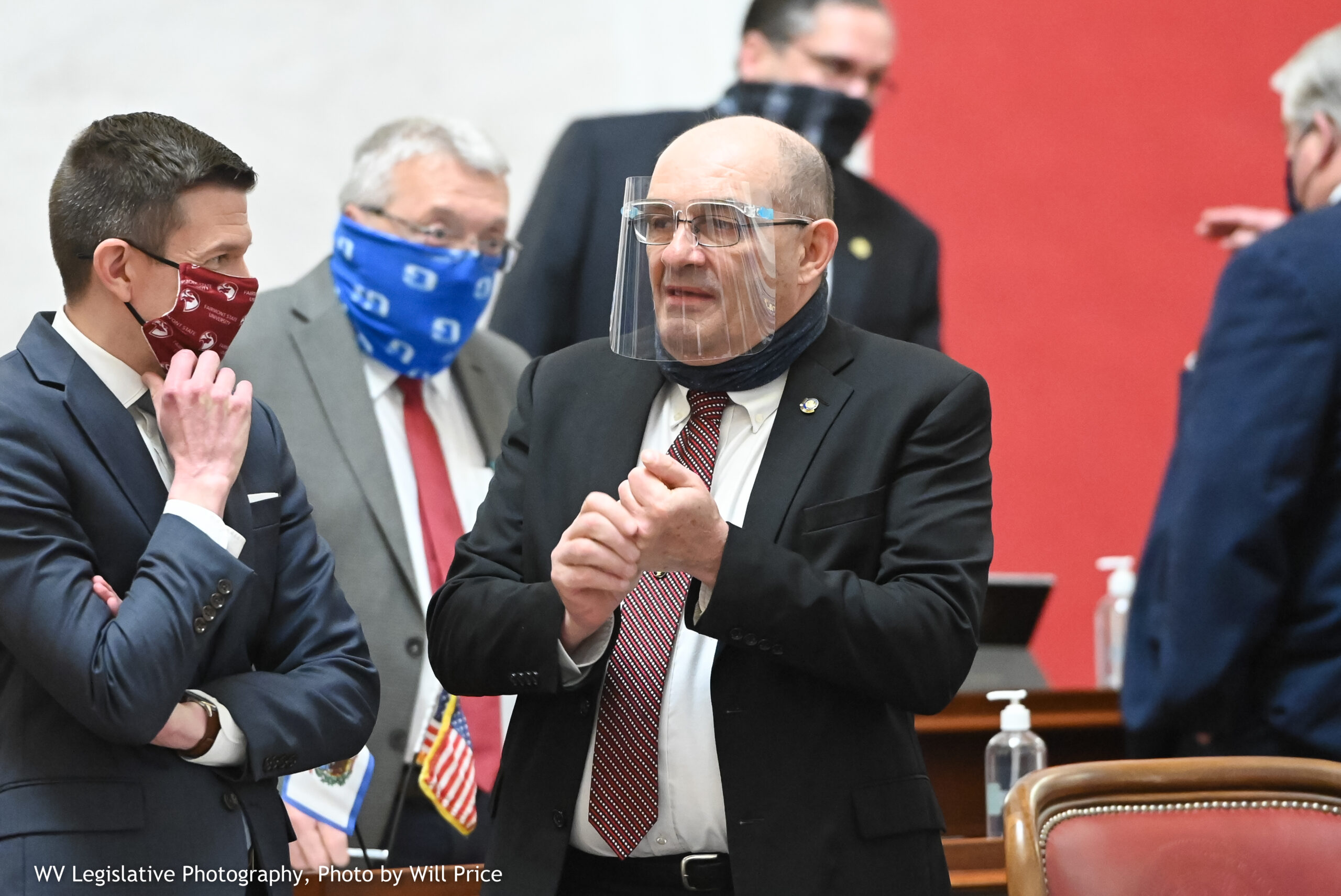MORGANTOWN – The two-year debate over a contentious drinking water pollution rule reached its conclusion Friday as the Senate approved HB 2382.
HB 2382 is a Department of Environmental Protection rules bundle that includes a rule concerning human health criteria for 24 contaminants in wastewater discharges. The rule is derived from a 2015 EPA update of its recommendations of 56 contaminants that DEP regulates.
The rule, with what was then 60 contaminants, was originally up for passage in 2019 but industry interests objected to some of the more stringent standards for various reasons – including that some parameters are unmeasurable.
After long debate, DEP settled on this halfway measure, making recommendations on 24 – with 13 being more stringent than current standards and 11 being weakened – and punting the other 32 to a working group preparing recommendations for the 2022 session.
On the Senate floor Friday, Sen. Richard Lindsay, D-Kanawha, pointed out the 11 weakened criteria. “I like to follow the science but I’m also a fan of following the science of cleaner water and reducing that acceptable risk as much as possible,” he said. Industry is already meeting the current standards, so why weaken them?
Sen. Mike Romano, D-Harrison, echoed that. “We should be adopting all of these, not just the ones that seem to have benefit for certain parties.”
Judiciary chair Charles Trump, R-Morgan, stood up for the bill as is, saying DEP agrees with the 24 included, weaker and stronger. “If we’re going to follow the science we should follow the science and not do it half the time,” adopting only the more stringent parameters.
He added that West Virginia is unique among its neighbors in regulating all water as drinking water, not just areas upstream of water system intakes.
The vote was 22-11 on party lines, and it goes to the governor.
House action
HB 2694 is called the Second Amendment Preservation Act. It says that no state agency, political subdivision or an employee of either of those acting in an official capacity may “knowingly and willingly participate in any way in the enforcement of any federal act, law, order, rule, or regulation regarding a firearm, firearm accessory, or ammunition if the act, law, order, rule, or regulation does not exist under the laws of this state.”
It bars use of public funds for the purposes mentioned. It includes exceptions for multi-agency task force investigations of drug crimes and for violations of federal law detected during unrelated law enforcement activity.
Judiciary chair Moore Capito, R-Kanawha, said the bill follows the example of a 2019 California bill that says state law enforcement officers may not enforce federal immigration law. That law was upheld in federal court, and this applies the same principle to firearms.
Delegate Jim Barach, D-Kanawha, was among those opposed. He said most law enforcement agencies have come out against it. “Forcing our officers to disobey federal laws is just not what we should be doing.”
It passed 74-22, with four Democrats voting yes and three Republicans voting no, and goes to the Senate.
HB 2933 is called the Anti-Discrimination Against Israel Act. It forbids the state and its political subdivisions from doing business with companies that boycott Israel, and includes guidelines on restrictions for state pension plans that invest in such companies.
BDS describes itself as a “movement for freedom, justice and equality. BDS upholds the simple principle that Palestinians are entitled to the same rights as the rest of humanity.” It opposes Israeli occupation of Palestinian territory.
The Anti-Defamation League says BDS opposes a two-state solution and its goal is to “the demonetization and delegitimization of Israel.”
Kessinger said 30 states have similar legislation and use an Illinois list of more than 40 companies that support BDS.
Capito said, “We feel it’s the best policy of West Virginia to not support that hateful activity.”
The vote was 94-2, and it goes to the Senate.
HB 3301 allows governments the option of extending the duration of existing or future tax increment financing districts. Delegate Erikka Storch, R-Ohio, said some TIF districts suffered during the economic downturn caused by the pandemic, and this will allow them to refinance their bonds if they wish.
Future TIFS could do the same if they face problems, she said.
The vote was 89-2, and it goes to the Senate.
TWEET David Beard@dbeardtdp
EMAIL dbeard@dominionpost.com




